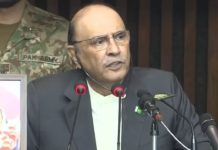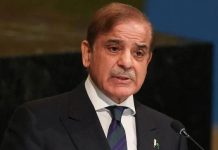UNITED NATIONS, FEB 12 (APP/DNA):Pakistan has called for putting “front and centre” financial justice that includes debt relief for developing countries among the priorities of the upcoming Second World Social Summit in Doha, Qatar, as part of a decisive move to build a more just world.
“An inclusive, just and equitable international financial architecture is essential to unlocking resources for social development,” Ambassador Asim Iftikhar Ahmad, alternate permanent representative of Pakistan to the UN, told the Commission for Social Development — one of the eight functional commissions established by the UN Economic and Social Council (ECOSOC) since 1946 to advise and assist it in carrying its work.
The Doha summit — from November 4th to 6th, 2025 — aims to address the persistent gaps in social development, recommit to the goals outlined in the 1995 Copenhagen Declaration and Programme of Action, and accelerate progress towards the 2030 Agenda for Sustainable Development.
“As developing countries struggle to implement the 2030 Agenda, we find ourselves in a paradox: while we are strongly committed to inclusive social development, the financial and structural resources required to achieve that, are lacking,” Ambassador Asim Ahmad said, while participating in a panel discussion at the 2025 session of the Commission.
Th Doha summit must serve as a turning point, he said, adding that It must move beyond aspirations and deliver tangible outcomes to bridge the growing social divide.
At the outset, the Pakistani envoy voiced concern that the core commitments of the Copenhagen Declaration had remained largely unfulfilled, noting that in 2024 the number of extremely poor was estimated at 692 million globally; and around 65% of the world population lives in countries where income inequality is growing; and in countries for which data exist, 57% of people report having low trust in policies impacting social integration and inclusion.
As social cohesion is indispensable for prosperity and sustainable development, Ambassador Asim Ahmad said Pakistan’s national development aligns with the commitments of the Copenhagen Declaration — prioritizing poverty eradication, employment generation, and social inclusion.
“We have made concerted efforts to invest in social protection, education, health, and employment generation,” he told delegates, pointing out programmes, such as, Benazir Income Support Programme (BISP), Prime Minister’s Youth Programme, micro-financing schemes, universal health coverage programmes and e-governance initiatives for public service delivery have been introduced to achieve social cohesion.
Ambassador Asim Ahmad said the Doha summit must also focus on providing adequate financing to provide social protection for 48% of the developing countries population, ensuring access to quality education, universal health coverage and social safety-nets.
The summit must contribute to promoting decent work that guarantees minimum labour standards, protects informal workers, and ensures equal pay for equal work, vocational training, skills development and digital literacy programmes, particularly for youth and women in developing countries, he said.
The Pakistani envoy underscored the need for promoting transparent and accountable governance, prioritizing combating corruption, improving public service delivery through the use of accountability mechanisms and reforming tax policies.
“Let us work together for a concise and action-oriented outcome in Doha that would put us on track to realize the Copenhagen commitments on Social Development.”
Opening the high-level discussion, the Commission’s Chairmen, Polish Ambassador Krzysztof Szczerski, said that solidarity and social inclusion are more important than ever as the world grapples with multiple emergencies such as the climate crisis, democratic backsliding and repeated human rights abuses.
Government ministers ranging from Sweden to Uganda, in the panel discussion titled “Strengthening solidarity and social cohesion”, spotlighted various ways their Governments were working to promote progress in health, education, gender equality, human rights, microfinance and macroeconomic measures, while also calling on the wider international community to recommit to sustainable development.
They expressed concern that trust and faith in Government and institutions had eroded in recent years just as progress faced new roadblocks.
“Progress towards eradication of poverty has lately stalled,” said Ambassador Szczerski, who also moderated the discussion.
Income and wealth inequality remain, while decent work is in short supply, he said. These developments, together with global trends and intersecting crises, hamper social inclusion.
“Governments need to tackle these challenges, but trust in them is in decline in many countries, weakening social cohesion and limiting the effectiveness of the social policies,” the chairman stressed, adding that the key to addressing these challenges is strengthening solidarity.
Stressing the need to combat mis- and disinformation, he said that citizen participation in Government and policy can indeed boost trust in the public sector.

















